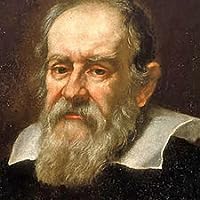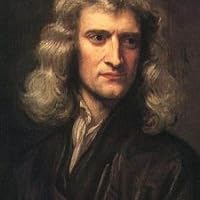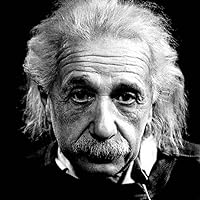Kepler Quotes
Quotes tagged as "kepler"
Showing 1-25 of 25

“Why should we place Christ at the top and summit of the human race? Was he kinder, more forgiving, more self-sacrificing than Buddha? Was he wiser, did he meet death with more perfect calmness, than Socrates? Was he more patient, more charitable, than Epictetus? Was he a greater philosopher, a deeper thinker, than Epicurus? In what respect was he the superior of Zoroaster? Was he gentler than Lao-tsze, more universal than Confucius? Were his ideas of human rights and duties superior to those of Zeno? Did he express grander truths than Cicero? Was his mind subtler than Spinoza’s? Was his brain equal to Kepler’s or Newton’s? Was he grander in death – a sublimer martyr than Bruno? Was he in intelligence, in the force and beauty of expression, in breadth and scope of thought, in wealth of illustration, in aptness of comparison, in knowledge of the human brain and heart, of all passions, hopes and fears, the equal of Shakespeare, the greatest of the human race?”
― About The Holy Bible
― About The Holy Bible

“My dear Kepler, what would you say of the learned here, who, replete with the pertinacity of the asp, have steadfastly refused to cast a glance through the telescope? What shall we make of this? Shall we laugh, or shall we cry?”
― Frammenti e lettere
― Frammenti e lettere

“I esteem myself happy to have as great an ally as you in my search for truth. I will read your work ... all the more willingly because I have for many years been a partisan of the Copernican view because it reveals to me the causes of many natural phenomena that are entirely incomprehensible in the light of the generally accepted hypothesis. To refute the latter I have collected many proofs, but I do not publish them, because I am deterred by the fate of our teacher Copernicus who, although he had won immortal fame with a few, was ridiculed and condemned by countless people (for very great is the number of the stupid).
{Letter to fellow revolutionary astronomer Johannes Kepelr}”
― Frammenti e lettere
{Letter to fellow revolutionary astronomer Johannes Kepelr}”
― Frammenti e lettere

“Copernicus, Galileo, and Kepler did not solve an old problem, they asked a new question, and in doing so they changed the whole basis on which the old questions had been framed.”
―
―

“If the people of Europe had known as much of astronomy and geology when the bible was introduced among them, as they do now, there never could have been one believer in the doctrine of inspiration. If the writers of the various parts of the bible had known as much about the sciences as is now known by every intelligent man, the book never could have been written. It was produced by ignorance, and has been believed and defended by its author. It has lost power in the proportion that man has gained knowledge. A few years ago, this book was appealed to in the settlement of all scientific questions; but now, even the clergy confess that in such matters, it has ceased to speak with the voice of authority. For the establishment of facts, the word of man is now considered far better than the word of God. In the world of science, Jehovah was superseded by Copernicus, Galileo, and Kepler. All that God told Moses, admitting the entire account to be true, is dust and ashes compared to the discoveries of Descartes, Laplace, and Humboldt. In matters of fact, the bible has ceased to be regarded as a standard. Science has succeeded in breaking the chains of theology. A few years ago, Science endeavored to show that it was not inconsistent with the bible. The tables have been turned, and now, Religion is endeavoring to prove that the bible is not inconsistent with Science. The standard has been changed.”
― Some Mistakes of Moses
― Some Mistakes of Moses

“Is it possible that the Pentateuch could not have been written by uninspired men? that the assistance of God was necessary to produce these books? Is it possible that Galilei ascertained the mechanical principles of 'Virtual Velocity,' the laws of falling bodies and of all motion; that Copernicus ascertained the true position of the earth and accounted for all celestial phenomena; that Kepler discovered his three laws—discoveries of such importance that the 8th of May, 1618, may be called the birth-day of modern science; that Newton gave to the world the Method of Fluxions, the Theory of Universal Gravitation, and the Decomposition of Light; that Euclid, Cavalieri, Descartes, and Leibniz, almost completed the science of mathematics; that all the discoveries in optics, hydrostatics, pneumatics and chemistry, the experiments, discoveries, and inventions of Galvani, Volta, Franklin and Morse, of Trevithick, Watt and Fulton and of all the pioneers of progress—that all this was accomplished by uninspired men, while the writer of the Pentateuch was directed and inspired by an infinite God? Is it possible that the codes of China, India, Egypt, Greece and Rome were made by man, and that the laws recorded in the Pentateuch were alone given by God? Is it possible that Æschylus and Shakespeare, Burns, and Beranger, Goethe and Schiller, and all the poets of the world, and all their wondrous tragedies and songs are but the work of men, while no intelligence except the infinite God could be the author of the Pentateuch? Is it possible that of all the books that crowd the libraries of the world, the books of science, fiction, history and song, that all save only one, have been produced by man? Is it possible that of all these, the bible only is the work of God?”
― Some Mistakes of Moses
― Some Mistakes of Moses

“Lest we forget, the birth of modern physics and cosmology was achieved by Galileo, Kepler and Newton breaking free not from the close confining prison of faith (all three were believing Christians, of one sort or another) but from the enormous burden of the millennial authority of Aristotelian science. The scientific revolution of the sixteenth and seventeenth centuries was not a revival of Hellenistic science but its final defeat.”
― Atheist Delusions: The Christian Revolution and Its Fashionable Enemies
― Atheist Delusions: The Christian Revolution and Its Fashionable Enemies

“In the beginning of the year 1665 I found the Method of approximating series & the Rule for reducing any dignity of any Binomial into such a series. The same year in May I found the method of Tangents of Gregory & Slusius, & in November had the direct method of fluxions & the next year in January had the Theory of Colours & in May following I had entrance into ye inverse method of fluxions. And the same year I began to think of gravity extending to ye orb of the Moon & (having found out how to estimate the force with wch [a] globe revolving within a sphere presses the surface of the sphere) from Kepler's rule of the periodic times of the Planets being in sesquialterate proportion of their distances from the center of their Orbs, I deduced that the forces wch keep the Planets in their Orbs must [be] reciprocally as the squares of their distances from the centers about wch they revolve: & thereby compared the force requisite to keep the Moon in her Orb with the force of gravity at the surface of the earth, & found them answer pretty nearly. All this was in the two plague years of 1665-1666. For in those days I was in the prime of my age for invention & minded Mathematicks & Philosophy more then than at any time since.”
―
―

“Kepler's laws, although not rigidly true, are sufficiently near to the truth to have led to the discovery of the law of attraction of the bodies of the solar system. The deviation from complete accuracy is due to the facts, that the planets are not of inappreciable mass, that, in consequence, they disturb each other's orbits about the Sun, and, by their action on the Sun itself, cause the periodic time of each to be shorter than if the Sun were a fixed body, in the subduplicate ratio of the mass of the Sun to the sum of the masses of the Sun and Planet; these errors are appreciable although very small, since the mass of the largest of the planets, Jupiter, is less than 1/1000th of the Sun's mass.”
― The Principia : Mathematical Principles of Natural Philosophy
― The Principia : Mathematical Principles of Natural Philosophy
“Things that look like they were designed, probably were... If intelligence is an operative component of the universe, a science that methodologically excludes its existence will be susceptible to being trapped in an endless chase for materialistic causes that do not exist... Where there are sufficient grounds for inferring intelligent causation, based on evidence of "specified complexity," it should be considered as a component of scientific theories.
Inclusion of intelligent causation in the scientific equation is not novel and has not impeded the practice of science in the past, e.g. Newton and Kepler, in an age when science was not constrained by a philosophical materialism, and by many current scientists who have remained open to following the evidence where it leads.”
―
Inclusion of intelligent causation in the scientific equation is not novel and has not impeded the practice of science in the past, e.g. Newton and Kepler, in an age when science was not constrained by a philosophical materialism, and by many current scientists who have remained open to following the evidence where it leads.”
―

“It is to these two discoveries by Bradley that we owe the exactness of modern astronomy. .... This double service assures to their discoverer the most distinguished place (after Hipparchus and Kepler) above the greatest astronomers of all ages and all countries.”
―
―

“Kepler’s discovery would not have been possible without the doctrine of conics. Now contemporaries of Kepler—such penetrating minds as Descartes and Pascal—were abandoning the study of geometry ... because they said it was so UTTERLY USELESS. There was the future of the human race almost trembling in the balance; for had not the geometry of conic sections already been worked out in large measure, and had their opinion that only sciences apparently useful ought to be pursued, the nineteenth century would have had none of those characters which distinguish it from the ancien régime.”
― Collected Papers of Charles Sanders Peirce, Volumes V and VI, Pragmatism and Pragmaticism and Scientific Metaphysics
― Collected Papers of Charles Sanders Peirce, Volumes V and VI, Pragmatism and Pragmaticism and Scientific Metaphysics

“After a duration of a thousand years, the power of astrology broke down when, with Copernicus, Kepler, and Galileo, the progress of astronomy overthrew the false hypothesis upon which the entire structure rested, namely the geocentric system of the universe. The fact that the earth revolves in space intervened to upset the complicated play of planetary influences, and the silent stars, related to the unfathomable depths of the sky, no longer made their prophetic voices audible to mankind. Celestial mechanics and spectrum analysis finally robbed them of their mysterious prestige.”
― Astrology and Religion Among the Greeks and Romans
― Astrology and Religion Among the Greeks and Romans

“The German astronomer Johannes Kepler coined the term “camera obscura” in the early seventeenth century, but by then the phenomenon had been known for millennia; in fact, it is perhaps the oldest known optical illusion. Some form of camera obscura was most likely behind a popular illusion performed in ancient Greece and Rome, in which spectral images were cast upon the smoke of burning incense by performers using concave metal mirrors—hence the expression “smoke and mirrors.”
―
―

“Foreshadowings of the principles and even of the language of [the infinitesimal] calculus can be found in the writings of Napier, Kepler, Cavalieri, Fermat, Wallis, and Barrow. It was Newton's good luck to come at a time when everything was ripe for the discovery, and his ability enabled him to construct almost at once a complete calculus.”
― A Short Account of the History of Mathematics
― A Short Account of the History of Mathematics
“Kepler followed Proclus and believed that 'the main goal of Euclid was to build a geometric theory of the so-called Platonic solids.' Kepler was fascinated by Proclus and often quotes him calling him a 'Pythagorean'. [History of Mathematics]”
―
―

“You say 'love' too easily, Kepler."
"No, not rally - please don't call me that. The idea that love has to be a blazing romantic thing of monogamous stability is innately ludicrous. You loved your parents, perhaps, because they were the warmth you could flee to. You loved your first childhood crush with a passion that made your lips tingle, your flesh grow light in their presence. You loved your wife with the steadiness of an ocean against the shore; your lover with the blaze of a shooting star, your best friend with the confidence of a mountain. Love is a many-splendorous thing, as the old song says....”
― Touch
"No, not rally - please don't call me that. The idea that love has to be a blazing romantic thing of monogamous stability is innately ludicrous. You loved your parents, perhaps, because they were the warmth you could flee to. You loved your first childhood crush with a passion that made your lips tingle, your flesh grow light in their presence. You loved your wife with the steadiness of an ocean against the shore; your lover with the blaze of a shooting star, your best friend with the confidence of a mountain. Love is a many-splendorous thing, as the old song says....”
― Touch

“Contemporaries only know the authority figures and the loudmouths. And the people born into power. But it takes perspective to know who's carrying the load. Nobody here has a clue who Johannes Kepler is. All they know about Galileo is that he's a teacher who got in trouble with the Inquisition. I doubt anyone's heard of Francis Bacon. Even in Britain, nobody really knows him. He's just a guy with a funny name.”
― Time Travelers Never Die
― Time Travelers Never Die

“When she looks up again, she sees something incomprehensible. An animal has come out of the forest on two legs. It's walking on the logging road, bent and stumbling. A tiny figure covered in dirt, blood and clay.
Pia holds her breath. It isn't an animal after all. It's almost as if a part of the forest has freed itself and come alive. As if it's a little girl made from twigs.”
―
Pia holds her breath. It isn't an animal after all. It's almost as if a part of the forest has freed itself and come alive. As if it's a little girl made from twigs.”
―

“Have you ever or are you now involved in espionage or sabotage, or in terrorist activities, or genocide? I think we can put a big yes down for all of the above.”
― Touch
― Touch

“I wonder on how that spectacle in the night sky must have forever sparked the curiosity of that young boy.”
― Random Cosmos
― Random Cosmos

“Nu ne întrebăm în ce scop util cântă păsările, cântecul este bucuria lor de când au fost zămislite pentru cântat. La fel, n-ar trebui să ne întrebăm de ce spiritul omului se străduieşte să pătrundă secretele cerurilor. Diversitatea fenomenelor naturii e atât de mare, iar comorile ascunse în ceruri atât de bogate, tocmai pentru ca spiritul omului să nu fie nicicând lipsit de hrană proaspătă.”
―
―
All Quotes
|
My Quotes
|
Add A Quote
Browse By Tag
- Love Quotes 97k
- Life Quotes 75.5k
- Inspirational Quotes 72.5k
- Humor Quotes 43.5k
- Philosophy Quotes 29.5k
- Inspirational Quotes Quotes 27k
- God Quotes 26k
- Truth Quotes 23.5k
- Wisdom Quotes 23.5k
- Romance Quotes 23k
- Poetry Quotes 22k
- Death Quotes 20k
- Happiness Quotes 18.5k
- Life Lessons Quotes 18.5k
- Hope Quotes 18k
- Faith Quotes 18k
- Quotes Quotes 16.5k
- Inspiration Quotes 16.5k
- Spirituality Quotes 15k
- Religion Quotes 15k
- Motivational Quotes 15k
- Writing Quotes 14.5k
- Relationships Quotes 14.5k
- Life Quotes Quotes 14k
- Love Quotes Quotes 13.5k
- Success Quotes 13.5k
- Time Quotes 12.5k
- Motivation Quotes 12k
- Science Quotes 11.5k
- Knowledge Quotes 11k




